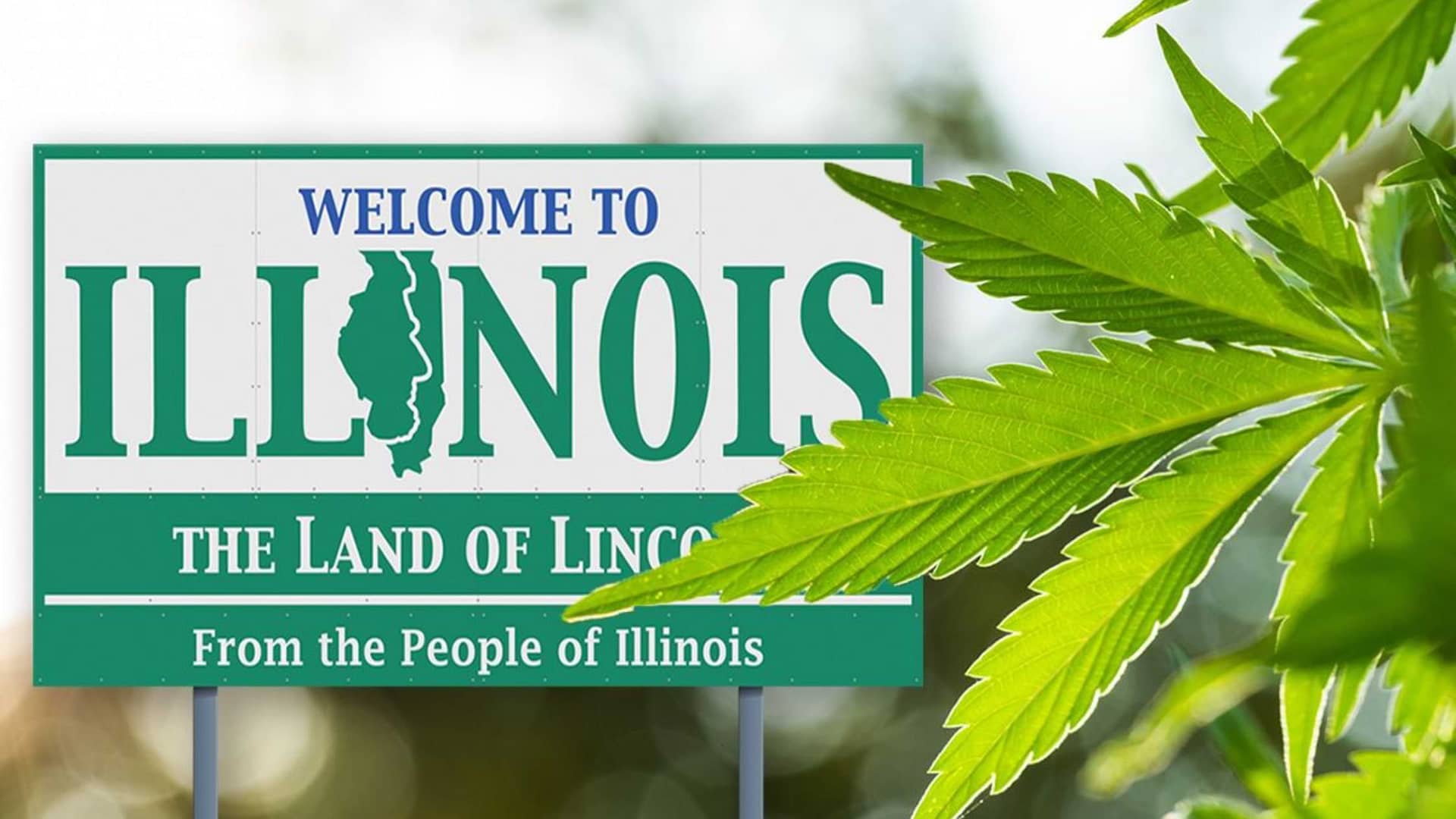Illinois residents aged 21 years and older now have the legal right to possess cannabis products. This includes up to 30 grams (about an ounce) of cannabis flower, 5 grams of cannabis concentrate (oils, dab, or kief), and 500 milligrams of THC within cannabis-infused products like edibles or tinctures. The state's progressive stance on marijuana has brought about significant changes, making it crucial for residents and visitors to grasp the intricacies of these evolving laws. We'll explore the historical context, medical and recreational regulations, and frequently asked questions, providing a clear understanding of Illinois marijuana laws.
Table of Contents
- 1 History Of Marijuana In Illinois
- 2 Medical Illinois Marijuana Laws
- 3 Recreational Marijuana Laws
- 4 Cannabis Dispensaries
- 5 Social Equity and Expungement
- 6 Law Enforcement and DUI
- 7 Challenges and Controversies
- 8 Economic Impact
- 9 Workplace and Employment
- 10 Conclusion
- 11 Frequently Asked Questions (FAQs)
- 12 Can anyone purchase marijuana in Illinois?
- 13 What medical conditions qualify for medical marijuana in Illinois?
- 14 How much marijuana can I possess in Illinois for recreational use?
- 15 Can I grow my own marijuana in Illinois?
- 16 Are there restrictions on where I can smoke or consume marijuana in Illinois?
- 17 Is marijuana still illegal at the federal level?
- 18 What are the penalties for driving under the influence of marijuana in Illinois?
- 19 How can I expunge my previous marijuana-related convictions in Illinois?
- 20 Can my employer fire me for using marijuana outside of work hours?
- 21 What are the tax rates on marijuana products in Illinois?
History Of Marijuana In Illinois

Illinois's journey toward marijuana legalization has been a long and transformative one. The state's early prohibition of cannabis mirrored national policies, but in recent decades, public opinion and legislative actions have shifted dramatically.
Medical marijuana legalization in Illinois in 2013 marked a turning point, and in 2020, the Cannabis Regulation and Tax Act paved the way for recreational use. This historical context is crucial for understanding the current legal framework.
Also check the current status of Illinois neighboring state, Iowa marijuana laws
Medical Illinois Marijuana Laws
The Illinois Compassionate Use of Medical Cannabis Program allows individuals with qualifying medical conditions to access marijuana for therapeutic purposes. Patients must apply for a medical marijuana card, which grants them legal access to state-licensed dispensaries.
| Aspect | Details |
| Qualifying Conditions | Patients with certain medical conditions, such as cancer, HIV/AIDS, epilepsy, and more, can qualify for medical marijuana use. |
| Medical Marijuana Card | Patients must apply for a medical marijuana card through the Illinois Department of Public Health (IDPH). Cardholders have legal access to state-licensed dispensaries. |
| Patient Limits | Medical marijuana cardholders can possess up to 2.5 ounces (approximately 70.9 grams) of cannabis during a 14-day period. |
| Cultivation Rights | Registered medical marijuana patients are allowed to cultivate up to five plants for personal use. |
| Dispensary Access | Patients can purchase medical cannabis from licensed dispensaries, ensuring safe and legal access to their prescribed medicine. |
| Doctor's Recommendation | Patients need a recommendation from a healthcare provider who is registered with the IDPH's Medical Cannabis Patient Program. |
| Legal Protections | Medical marijuana cardholders are protected from criminal prosecution for possessing and using cannabis for medical purposes |
Recreational Marijuana Laws
The Cannabis Regulation and Tax Act legalized recreational marijuana for adults aged 21 and older. Residents and visitors can purchase cannabis from licensed dispensaries, but there are strict possession limits to ensure responsible use.
Cannabis Dispensaries
Dispensaries play a pivotal role in Illinois's marijuana industry. These licensed businesses provide a wide range of cannabis products, ensuring safe and legal access for both medical and recreational users. Locating a dispensary near you is easy, thanks to the state's regulatory framework.
Social Equity and Expungement

Illinois is committed to social equity in the cannabis industry. Provisions in the law prioritize communities disproportionately affected by the war on drugs. Furthermore, the state is actively expunging past marijuana convictions, offering a fresh start for many.
Law Enforcement and DUI
Law enforcement agencies have adapted to the changing landscape of marijuana laws in Illinois. DUI laws have been updated to address marijuana impairment, and officers are trained to identify drugged driving. Sobriety tests and drug recognition experts play a crucial role in enforcement.
| Aspect | Details |
| Marijuana Impairment Detection | Illinois law enforcement is trained to detect and assess marijuana impairment, including during traffic stops and field sobriety tests. |
| DUI Penalties | Penalties for driving under the influence of marijuana (DUI) may include license suspension, fines, potential imprisonment, and mandatory substance abuse education programs. |
| Chemical Tests | Law enforcement may use chemical tests (e.g., blood and urine tests) to measure THC levels, leading to potential DUI charges upon positive results. |
| Zero Tolerance for Underage Drivers | Illinois has a zero-tolerance policy for drivers under 21; any detectable THC can result in DUI penalties. |
| Drug Recognition Experts (DREs) | Illinois employs Drug Recognition Experts (DREs) specially trained to identify impairment caused by drugs, including marijuana. |
| Enforcement and Safety | Law enforcement prioritizes road safety and diligently enforces DUI laws to ensure public safety. |
Challenges and Controversies
Despite progress, Illinois's marijuana industry faces several challenges and controversies. Zoning regulations, taxation, and concerns about public safety continue to be topics of debate. Advocates and policymakers are working to address these issues and refine the legal framework.
Economic Impact
The economic benefits of marijuana legalization are undeniable. Tax revenue generated by the industry contributes to the state's coffers, funding essential programs and services. Moreover, legalization has created job opportunities and stimulated economic growth.
Workplace and Employment

Navigating CBD and drug test policies in the workplace can be complex. Employers have the right to enforce drug testing, including testing for CBD, to maintain safe workplaces. Balancing employee rights with workplace safety in the context of CBD and drug tests is a constant challenge.
Conclusion
Illinois has made big changes in its marijuana laws. Some people can now use it for medical reasons, and others can use it for fun. This guide has shown you these rules and why they matter.
If you're sick and need marijuana for medical reasons or if you just want to use it for fun, you have to know these rules. Illinois is leading the way in changing marijuana laws, and it's important to know what you can and can't do.
By learning and following these rules, you can enjoy the benefits of marijuana without breaking the law.
Frequently Asked Questions (FAQs)
Can anyone purchase marijuana in Illinois?
No, only individuals aged 21 and older can legally purchase recreational marijuana.
What medical conditions qualify for medical marijuana in Illinois?
Qualifying conditions include cancer, HIV/AIDS, epilepsy, and more. Consult a healthcare provider for a complete list.
How much marijuana can I possess in Illinois for recreational use?
Adults can possess up to 30 grams of cannabis flower, 5 grams of cannabis concentrate, or edibles containing up to 500 milligrams of THC.
Can I grow my own marijuana in Illinois?
Yes, but only registered medical marijuana patients are allowed to cultivate up to five plants for personal use.
Are there restrictions on where I can smoke or consume marijuana in Illinois?
Yes, it's illegal to smoke or consume cannabis in public places, on school grounds, or in vehicles.
Is marijuana still illegal at the federal level?
Yes, marijuana remains classified as a Schedule I controlled substance by the federal government.
What are the penalties for driving under the influence of marijuana in Illinois?
DUI penalties include license suspension, fines, and potential imprisonment.
Illinois offers a process for expunging certain past convictions. Contact the Illinois State Police or consult a legal professional for guidance.
Can my employer fire me for using marijuana outside of work hours?
It depends on your employer's policies and the nature of your job. Some employers have a zero-tolerance policy, while others are more lenient.
What are the tax rates on marijuana products in Illinois?
Tax rates vary depending on the type of product and local regulations. Taxes can range from 10% to 25% or more.

MS, RD
Samantha Breslin, a registered dietitian (RD), empowers our readers to make informed choices for their health with her comprehensive reviews.















+ There are no comments
Add yours